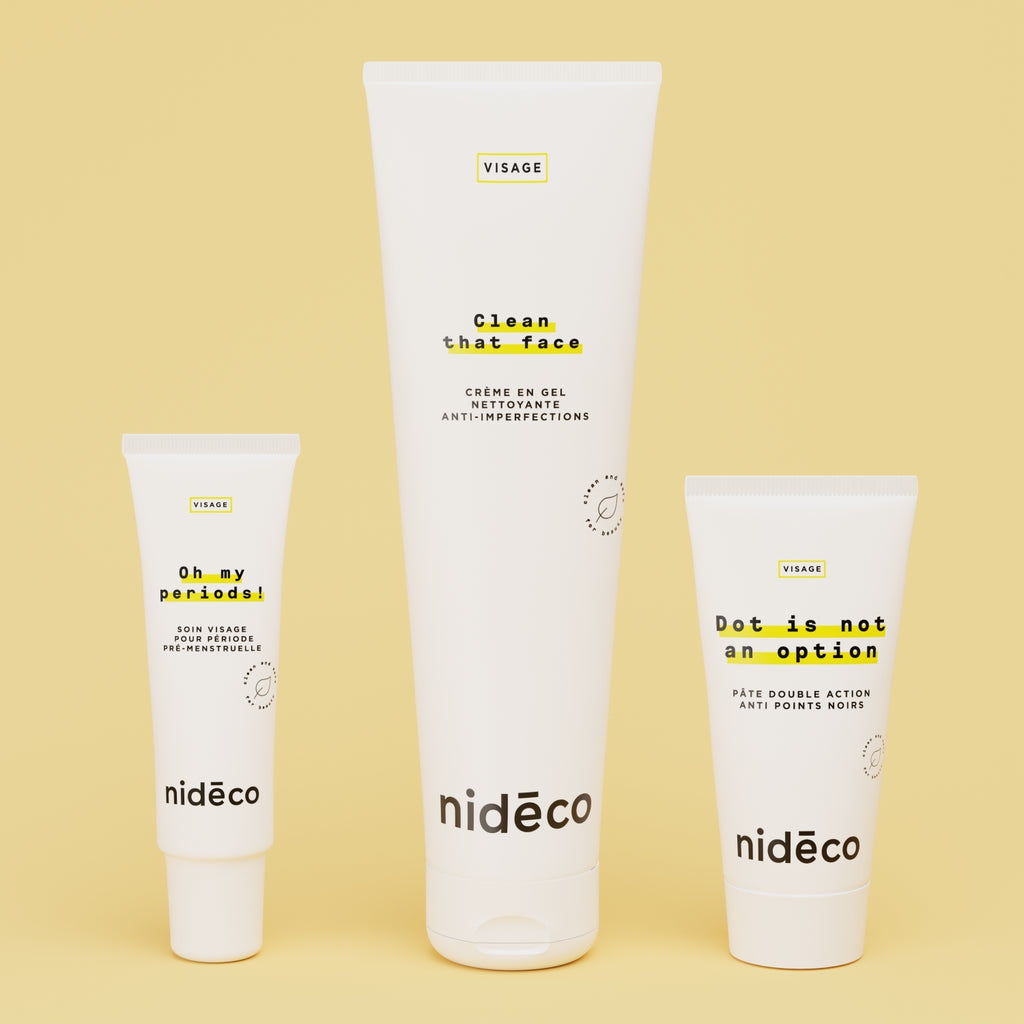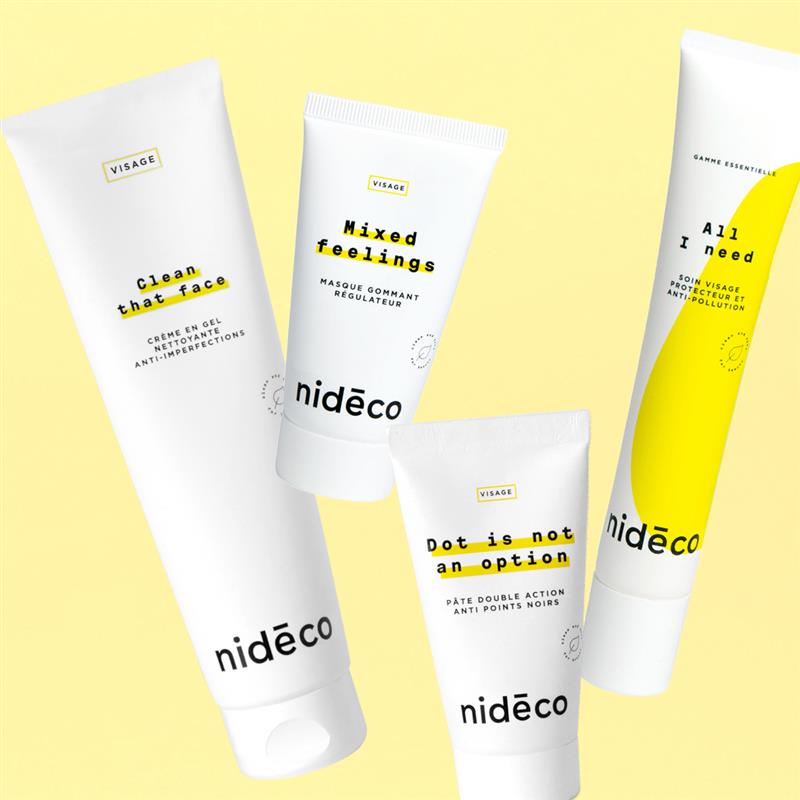The dangers of limescale on hair: A guide to protecting your hair

Although limescale is generally harmless to your health, it can have undesirable effects on your hair. If you live in an area where the water is "hard", i.e. loaded with limescale, you've probably already noticed that your hair becomes dull, dry or even difficult to style after each wash. But how does limescale actually affect your hair and, more importantly, how can you protect yourself from it? In this article, we'll explore the effects of limescale on your hair and offer practical solutions to help you regain soft, shiny, healthy hair.
What is limescale and how does it affect hair?
The limestone is a mineral deposit consisting mainly of calcium and magnesium carbonate. It is naturally present in tap water 🚰 particularly in areas with "hard" water. The more minerals in water, the more limescale it contains. This means that every time you wash your hair, these minerals are deposited on your hair fiber and scalp.
The problem with limescale is that it directly interferes with hair structure. By attaching itself to the cuticle (the hair's outer layer), limescale forms a kind of barrier that prevents your hair care products from being effective. So, even if you use the best shampoos, masks or conditioners, their active ingredients will have trouble penetrating deep into the hair.
Why is this a problem?
🧐 Limescale acts like a "chokehold" on your hair. On the one hand, it prevents moisture from reaching the core of the hair fiber, making your hair drier and more brittle. On the other hand, it creates a build-up of mineral residue, which can weigh hair down and make it difficult to style. Finally, if you have color-treated hair, limescale can alter color, making it dull and lack luster.
The visible effects of limescale on hair
Continuous exposure to limescale quickly affects the appearance of your hair. Here are the most common signs that your hair is suffering the damaging effects of limescale:
1. Dryness
❌ Limescale prevents natural moisture from penetrating your hair, making it dry and brittle. If you have naturally curly or frizzy hair, you'll notice that limestone accentuates this dryness, making frizz more pronounced.
2. Roughness
Limescale deposits a thin layer of minerals on your hair, making the cuticle irregular. The result? Hair becomes rough to the touch and lacks suppleness.
3. Tarnish
If your hair lacks shine, limescale is probably to blame. By depositing mineral residues on the hair fiber, it prevents light from reflecting, giving your hair a dull appearance.
4. Effects on color
For those with color-treated hair, limescale is particularly problematic. It can alter the color of your hair, especially if it's light or chemically colored. Over time, your hair can turn an undesirable color, especially if the initial color was bright or shiny.
Impact of limescale on scalp health
Your scalp is not spared the damaging effects of limescale. In addition to dulling your hair, limescale can also affect the health of your scalp, leading to discomforts such as :
1. Itching and irritation
Limescale has a drying effect not only on hair, but also on the scalp. This can lead to itching and irritation, especially if you have sensitive skin. 🥴
2. Dandruff
When the scalp is dried out by limescale, it can start to peel, leading to the appearance of dry dandruff. This can be all the more annoying when dandruff is visibly visible on the hair.
3. Drying out
A dry scalp 🥵 can hinder hair growth. A well-moisturized scalp is essential for healthy hair, and limescale, by preventing hydration, can affect this health in the long term.
Solutions to protect your hair from limescale
Fortunately, there are many ways to protect your hair from limescale and minimize its harmful effects. Here are a few solutions you can adopt on a daily basis to preserve the beauty of your hair.
1. Shower filters
One of the most effective ways to reduce exposure to limescale is to install a shower filter. These filters, often filled with activated carbon or ion exchange resin, neutralize much of the limescale before it reaches your hair.
2. Anti-limescale shampoos
Some shampoos are specially formulated to counter the effects of limescale. These products contain chelating agents that eliminate mineral residues and help restore shine and softness to your hair.
3. Rinse vinegar
Vinegar, especially cider vinegar, is an excellent natural way of neutralizing limescale. A final rinse with a mixture of water and vinegar (one tablespoon of vinegar to one liter of water) will remove limescale residues and restore your hair's shine.
Hair Yeah" anti-scaling treatment
🤩 If you're looking for a quick and effective solution, the Hair Yeah is here for you. This leave-in spray is designed to restore shine, softness and suppleness to all hair types, even those exposed to limescale on a daily basis. Thanks to its anti-scale formulationit neutralizes mineral deposits and protects your hair over the long term.
- Easy to use Apply as a light mist to clean, towel-dried hair for a detox effect, or to dry hair for a burst of freshness.
- Natural and effective Composed of 99% natural ingredientsvegan and formulated in France, Hair Yeah is good for your hair and for the environment.
- Versatile It can also be used as a detangler or to refresh your hair, ridding it of unwanted odors such as smoke or grease.
❤️ With Hair Yeahyour hair will regain its natural shine day after day, despite the limescale present in tap water.
Long-term prevention: water softeners and other options
👉 For optimal long-term results, consider installing a water softener at home. These devices filter the water at source, considerably reducing its limescale content.
Advantages :
- Softer hair and skin : By reducing limescale, a water softener leaves your hair softer and your skin more moisturized after every shower.
- More effective hair care With less limescale, your hair care products will work more effectively, as they will no longer be blocked by mineral residues.
Disadvantages :
- High initial cost Installing a water softener represents an investment, with purchase and installation costs that can be high.
- Regular maintenance A water softener requires regular maintenance to operate properly.




























